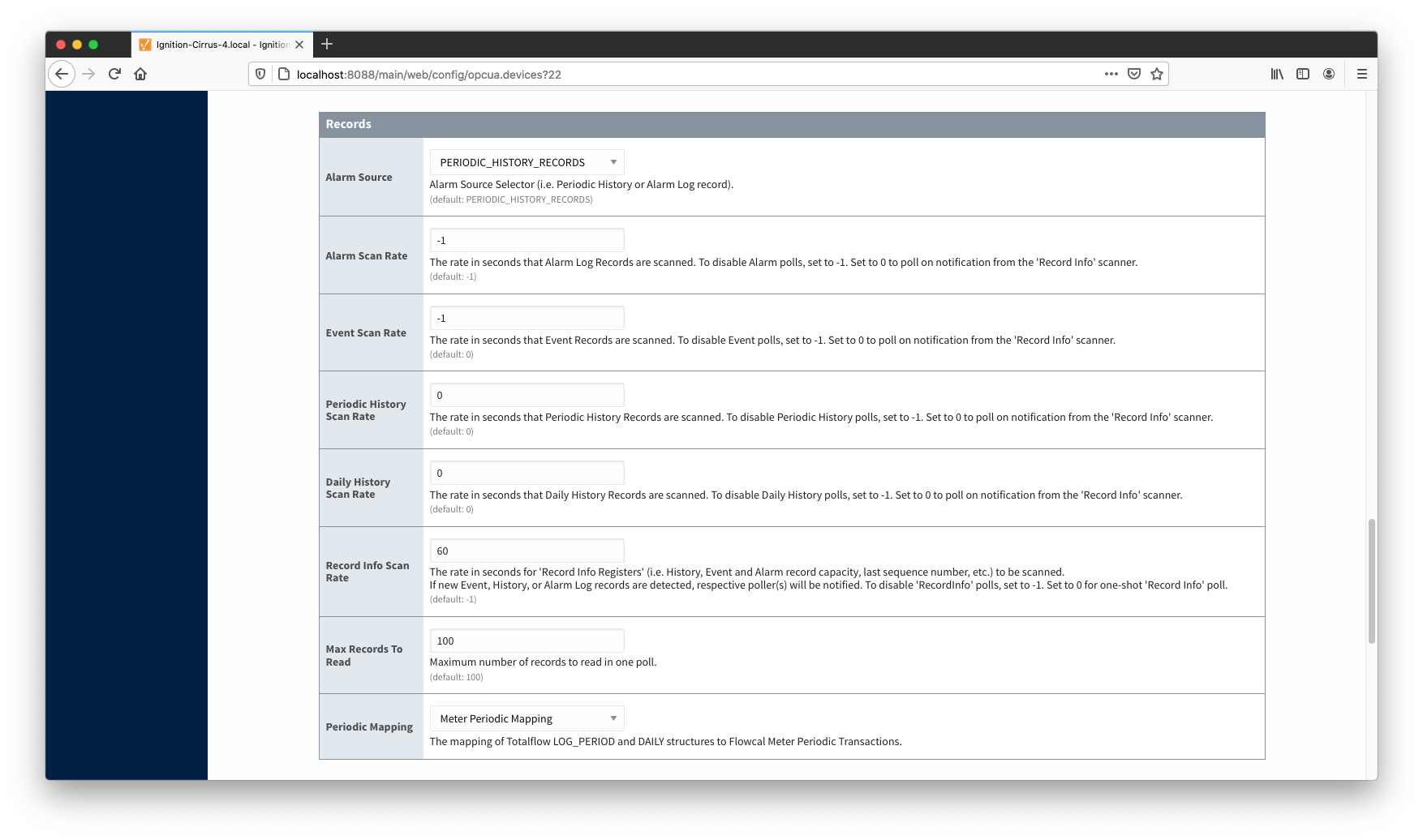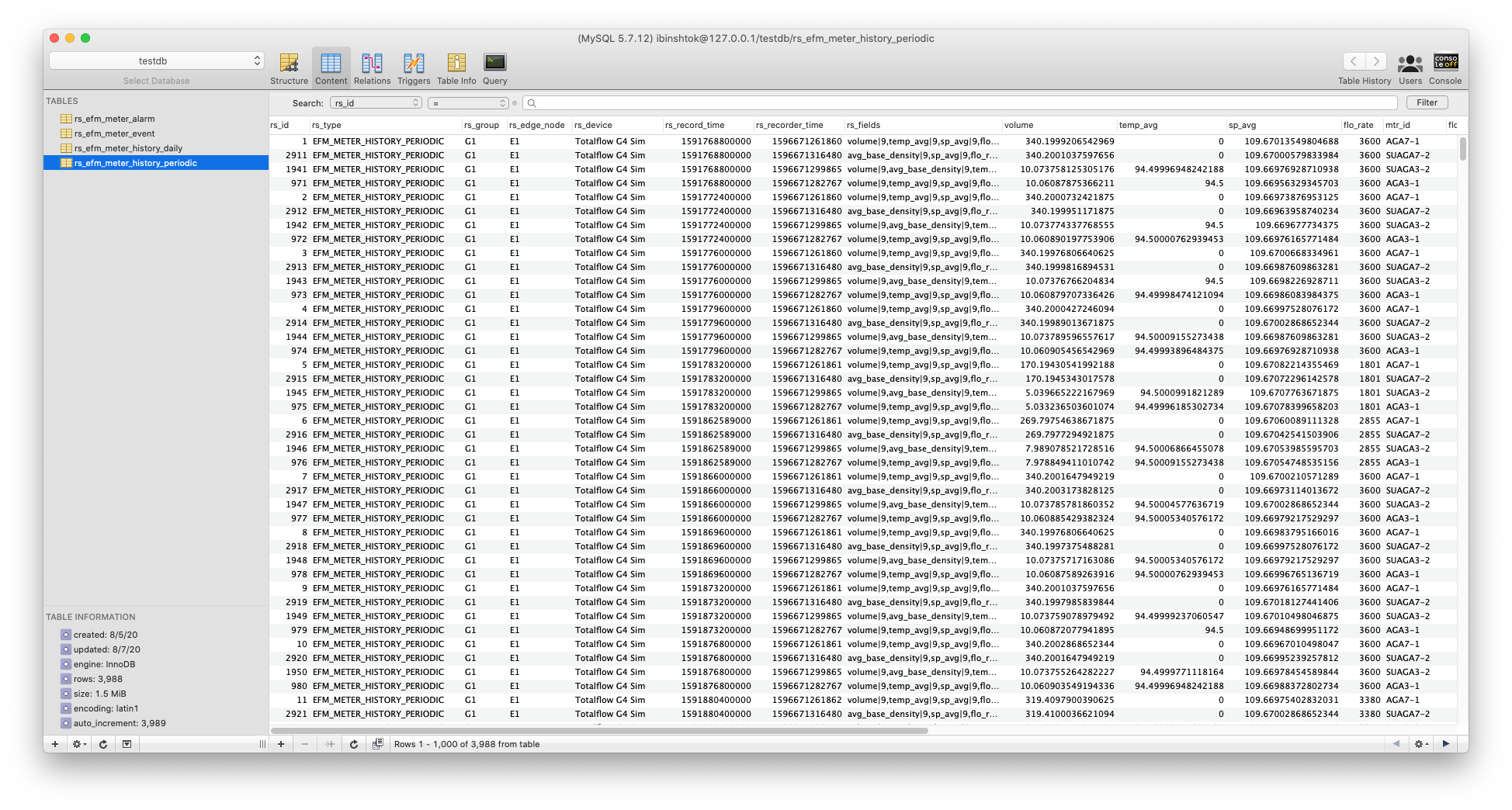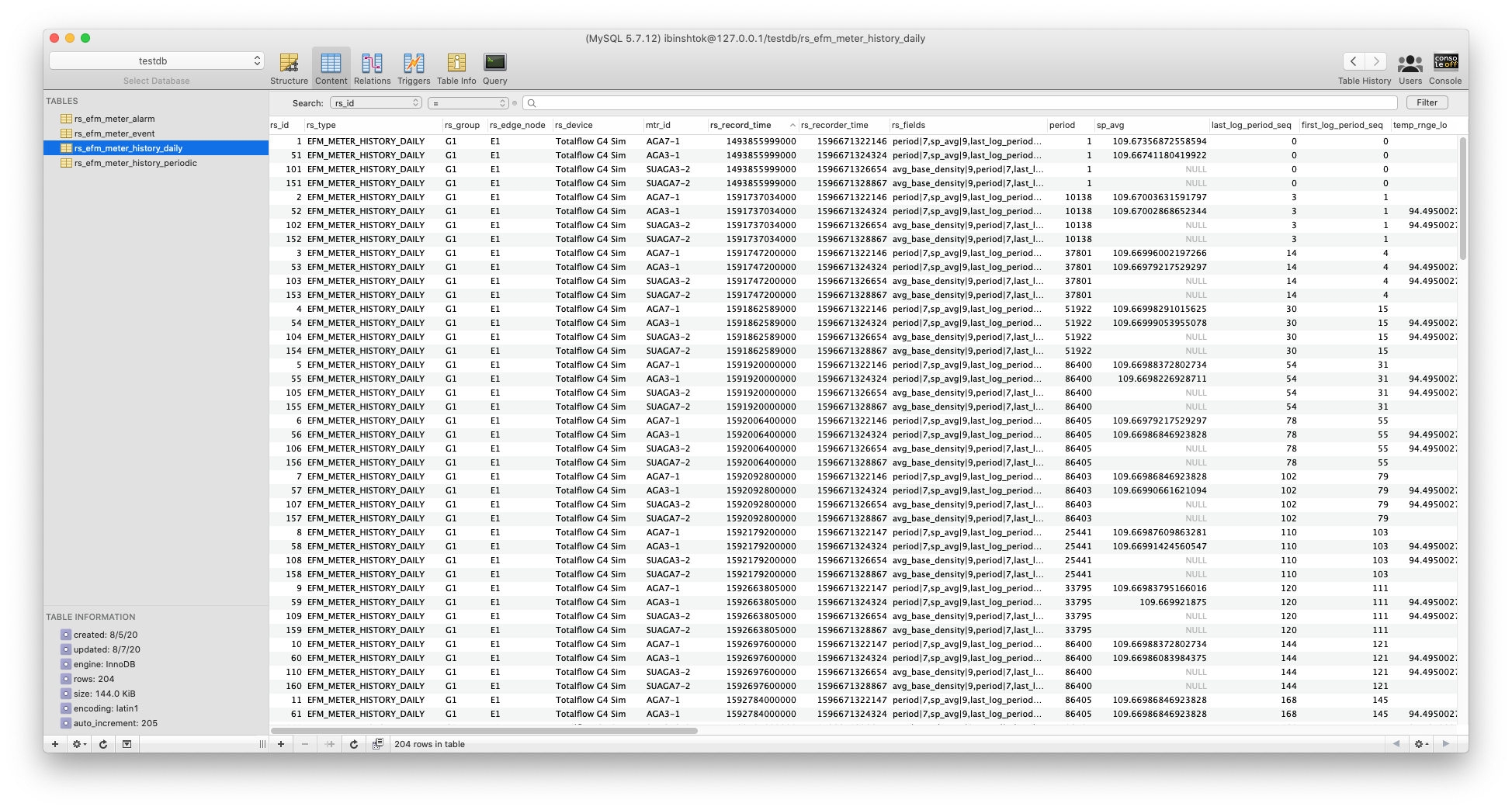...
As en example, let's configure the driver to poll for Periodic and Daily History and disable Alarms and Events and Alarms. This can be done in two ways:
...
- Alarm Scan Rate
- -1 Polling for Alarms is disabled
- Event Scan rate
- -1 Polling for Events is disabled
- Periodic History Scan Rate
- 0 Scan on notification form the 'Record Info' poller.
- Daily History Scan Rate
- 0 Scan on notification form the 'Record Info' poller.
- Record Info Scan Rate
- Needs to be set to a positive number to poll registers that contain information on Alarms, Events, and History and notify History poller that there is a new entry in Array 250 (LOG_PERIOD_RECORD) or Array 251 (DAILY_RECORD).

At this point the EFM ABB Totalflow driver is configured and is polling for history data at the rate specified in the EFM ABB Totalflow device configuration.
MQTT Transmission is connected to the MQTT Server and as a result MQTT Engine is receiving tag change events. In addition, because an EFM ABB Totalflow device has been created and configured with the same Sparkplug Group ID, Edge Node ID, and Device ID, history data will also be pushed to the MQTT server as Sparkplug RECORD objects. When new history data is polled by the EFM ABB Totalflow driver, they will be published to the MQTT server, consumed by MQTT Engine, passed on to MQTT Recorder, and then inserted into the specified database. Below are a few views of some history records using a third party database viewing tool.
 Image Modified
Image Modified
 Image Modified
Image Modified
![]()
![]()
![]()
![]()
![]()
![]()
![]()
![]()
![]()
![]()


